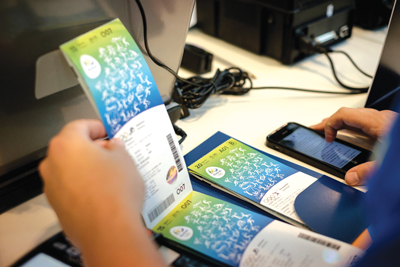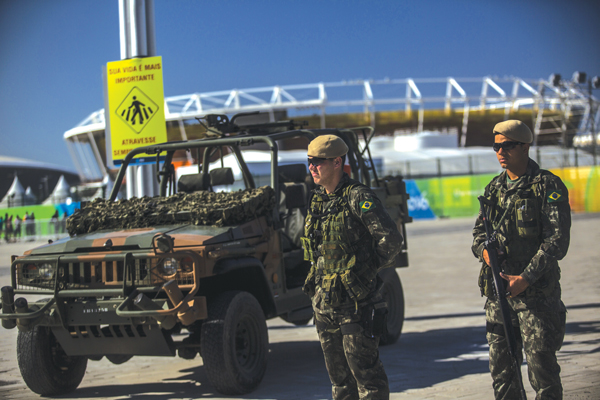Attendance and ticket sales
 |
Ticket demand has been sluggish.
Photo by: Getty Images |
In April, Olympics sponsor Visa published a report predicting 400,000 to 500,000 international tourists in Rio for the Summer Olympics, but experts are dubious. The troubled Brazilian economy has held down domestic ticket sales, and the drumbeat of bad news has dampened enthusiasm from overseas. As of July 20, 28 percent of the Games’ 6.1 million tickets were still available.
“126,000 people came to London from North America, and it would be hard to see more people going to Rio than there would have been going to London,” said Ken Hanscom, chief product officer of InviteManager, which manages ticket inventory for the U.S. Olympic Committee and others.
For the last-minute, caution-to-the-wind traveler, deals are at hand. The dollar goes a long way in Rio, and Brazilian organizers recently opened Brazil-only tickets to the international market at current exchange rates — effectively a huge price cut.
“This may be one of the most affordable and accessible Olympics ever,” Hanscom said.
 |
Brazil plans to have 85,000 police and military personnel providing security.
Photo by: Getty Images |
Safety
Brazilian authorities arrested 12 suspected radical Islamic terrorists late last month, news that scared the Olympic world after recent mass murders in Nice, Munich and Orlando. But even if those arrested were “complete amateurs,” in the words of Brazil’s interim justice minister, Alexandre de Moraes, Rio has profound problems with street crime.
Robberies are up 30 percent over last year, and several Olympic and Paralympic athletes have been robbed at gunpoint while preparing for the Games. Brazilian authorities promise an unprecedented show of force for event security, stationing 85,000 police and military personnel on the streets. But will raw numbers be enough?
The private company in charge of manning security screening devices at event venues has little major event experience and only won the contract July 1.
Getting around town
Sports marketers and consultants say traffic has been the overwhelming challenge in Rio as they plan for the Games. Will Rio be yet another case of the traffic going away during the Games as locals stay home, a la London and Los Angeles? Or will traffic snarls cause executives to blow meetings around the city and track stars to be late to their own competitions?
All eyes are on the city’s Metro Line 4, a crucial, multibillion-dollar subway connector between the Olympic Park in Barra da Tijuca and the city’s beaches. It’s supposed to open today, only four days before the Games.
Athletes’ comfort
 |
Crews scrambled to finish housing as athletes began to check in.
Photo by: Getty Images |
The Australian Olympic team refused to move into the Athletes’ Village on July 24, complaining that the new apartments had blocked toilets, leaking pipes and exposed wiring. USA Track and Field is worried about athletes getting to the stadium on time, and USA Swimming is going to extraordinary lengths to ensure a good night’s sleep on an unusual schedule. Rio 2016’s overall preparation for the actual athletic venues and accommodations had been a relative success story, but it won’t take much for that to change if more athletes continue to face hardships.
NBC Olympics: Finally, live
If NBC’s critics from 2008 and 2012 are right, then Rio should be a ratings bonanza for the network. After playing with the plausibly live concept in time-zone unfriendly London, Beijing, Athens and Sydney, NBC says virtually all of the Rio Games will air live in the United States. No more hiding Twitter updates at work so you won’t spoil the results of what will be shown during prime time. NBC is promising advertisers nightly ratings in the high teens.
 |
The Russian Olympic Committee is dealing with the fallout of doping scandals.
Photo by: Getty Images |
Who will compete for Russia?
It may be only days before the opening ceremony before we know exactly who’s coming from Russia. In a highly controversial decision July 24, the International Olympic Committee rebuffed calls to ban the entire Russian team over doping scandals, instead allowing each individual sport to make the call.
That’s a labor-intensive process, and the decisions are likely to affect the medal tables. Meanwhile, the political fallout for the IOC and the entire Olympic movement continues to build, and the body will spend much of the Rio Games handling criticism from athletes, sports leaders and the media.







